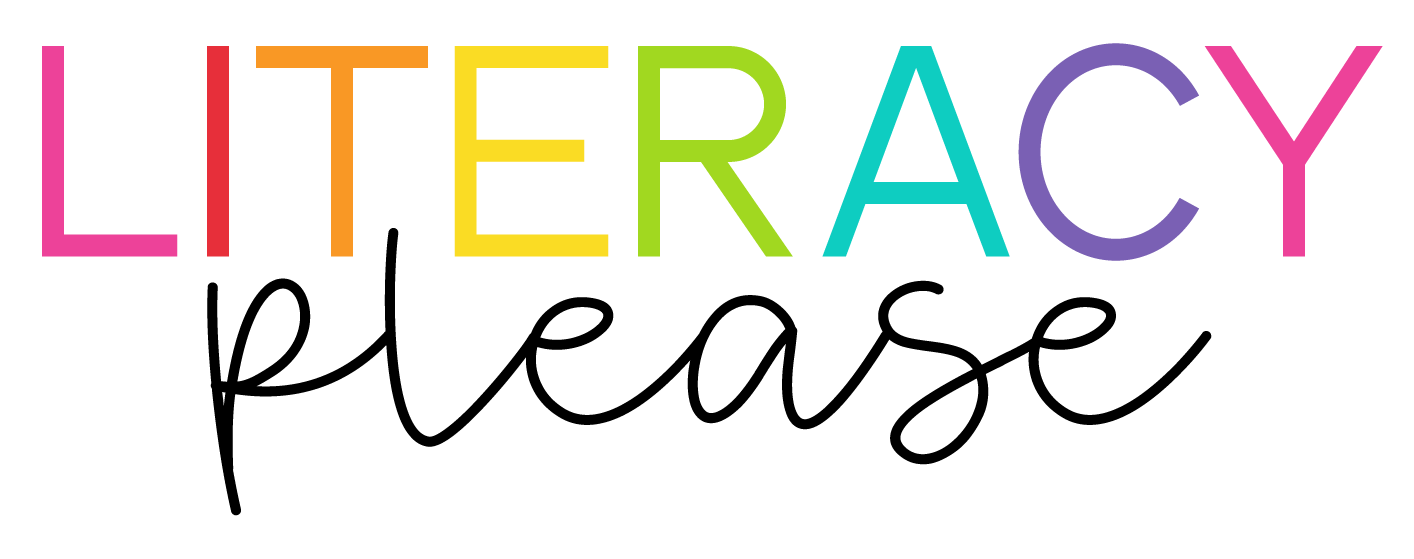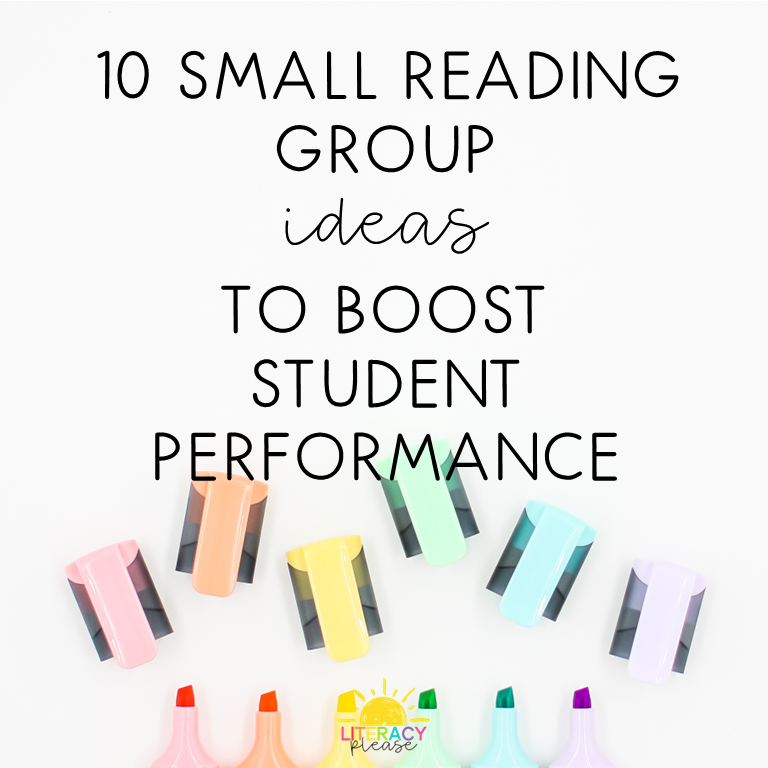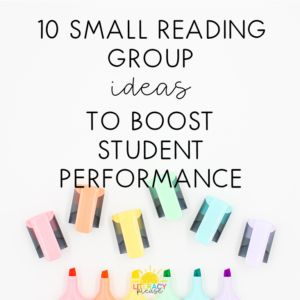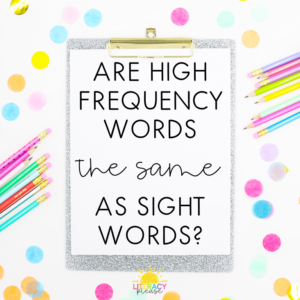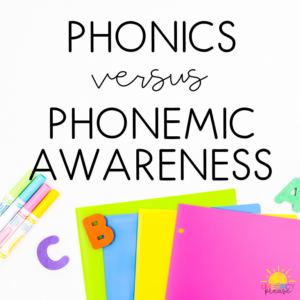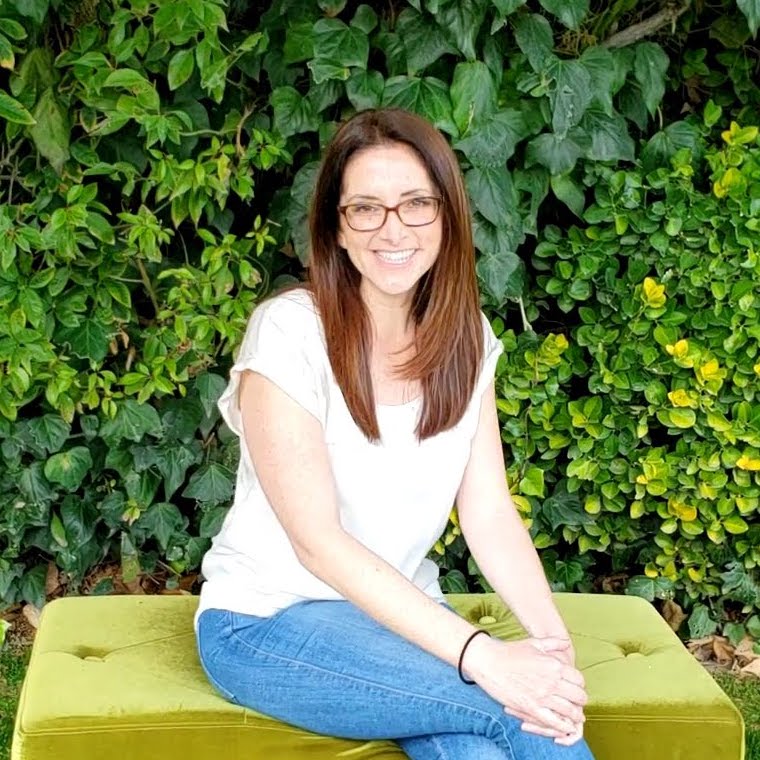Kids love reading groups and They get that extra special teacher time sprinkled with lots of attention and the chance to be themselves. If you’re a new teacher you might be wondering how you can tackle the task of making reading groups. Or maybe you’re an experienced teacher looking for new ways to group your students for reading. Either way small reading groups can be created in many different ways. You have the students and you have their needs, now you need some small reading group ideas.
Regardless of the reading assessments you use to assess your students, you likely have data on them . If you’re wondering what to do with that information and how to use it at your small group reading table, I have ten ideas for you. As a result, you’re quite likely to see a boost in your students’ reading performance and their confidence.
1: Speaking and Listening
You likely have students that need extra practice speaking in complete sentences or listening to others as they speak. While your students may not actually be reading in this group, speaking and listening skills do improve students’ literacy skills.
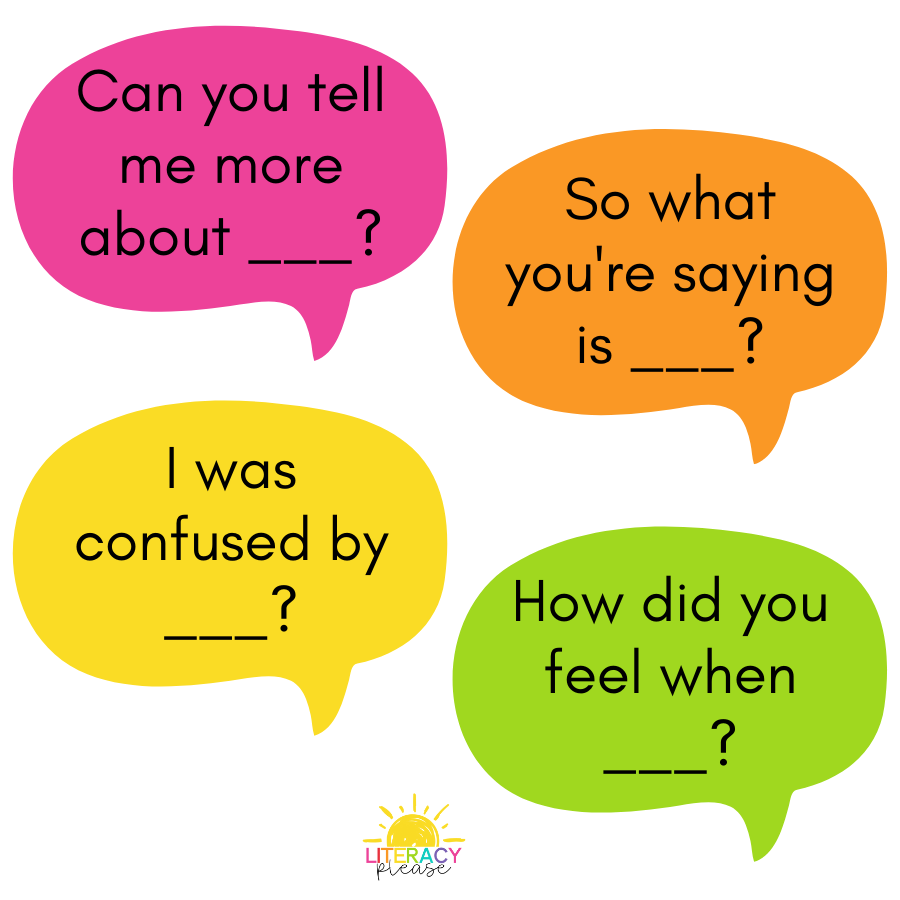
This group can consist of conversations about weekend activities or discussing a certain topic. To add rigor to this group, have one child practice his/her speaking skills while other ask clarifying questions or repeat what the speaker says. This is a great resource for your students that will help guide their conversations while using academic language.
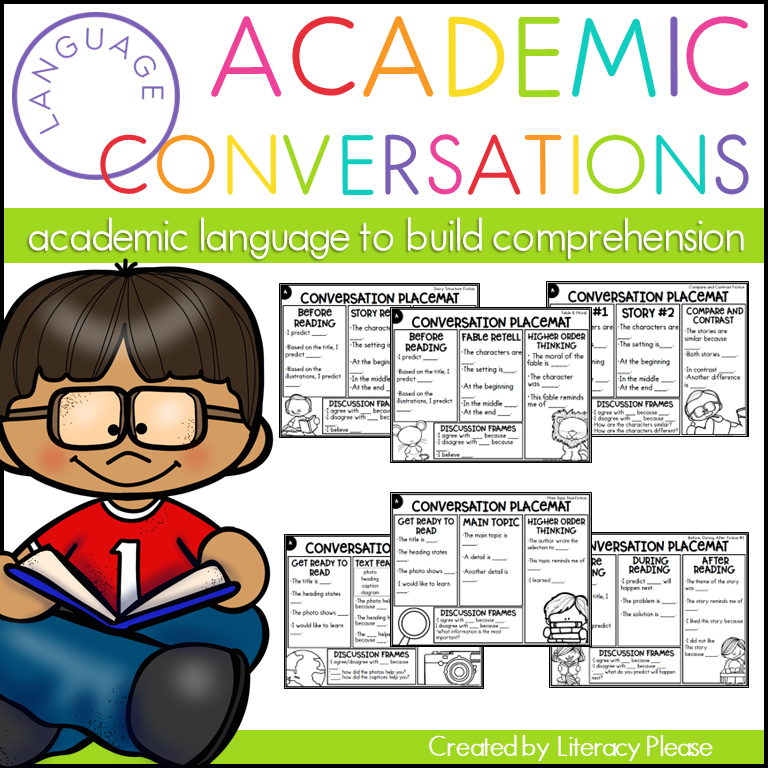
2: Early Literacy Skills
The number of students in your class needing early literacy skills will depend on the grade level you teach. But it’s likely you’ll have at least one if you teach first and second grade. These skills are imperative to reading and writing and can be quite fun to teach. Think of this group as a small reading group that requires very little planning, but a lot of love.
Students that need this group likely need one or more of the following:
- how to hold a book
- how to turn pages of a book
- an understanding that print carries meaning
- letters vs. words
- words vs. sentences
- left to right reading
- parts of a book
- letter names
- lowercase vs. uppercase
- forming letters
Most of these activities can be done by simply pulling out a read aloud or a big book, but presented with tons of enthusiasm to build a love of books.
Get your free starter pack! Click on the image.
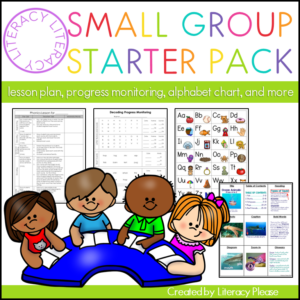
3: Phonological Awareness
This group doesn’t require materials, although you could use things like Elkonin boxes or slinkies to make things more interesting.
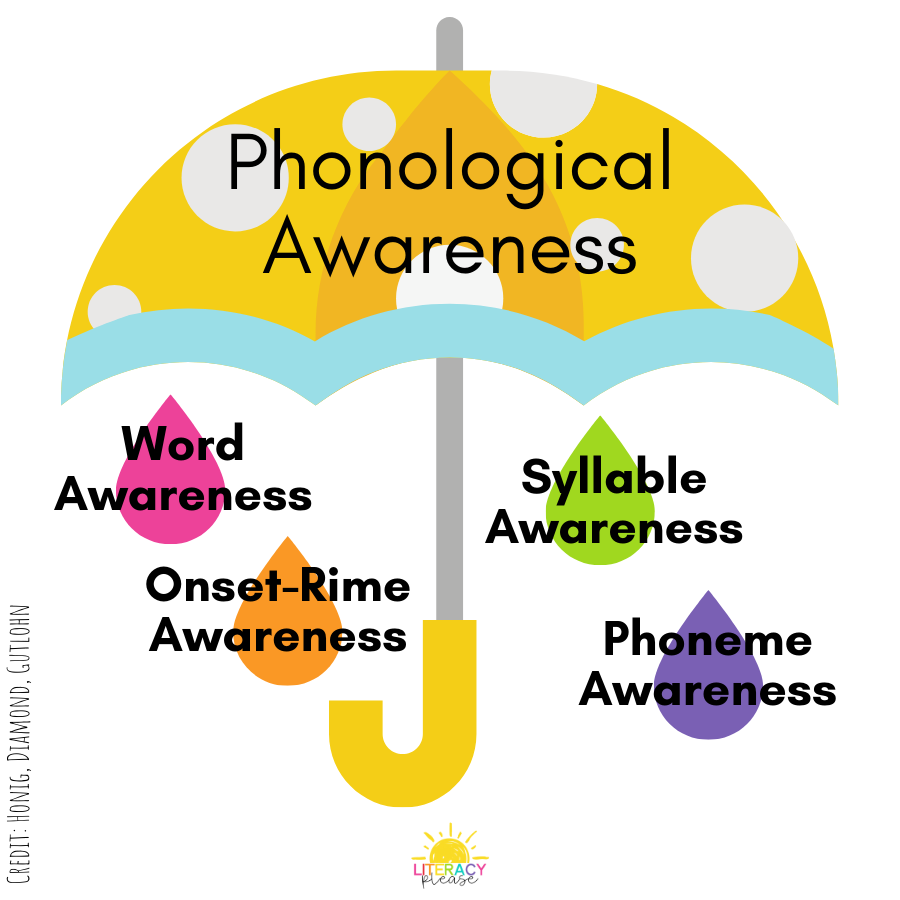
Phonological awareness is an awareness of words, parts of words, and individual sounds. It can be a quick 3-5 minute group in which you lead kids in playing with words and sounds. This post breaks apart the parts of phonological awareness to give you some ideas for getting this group going.
4: Phonics
A phonics group focuses on the relationship between letters and sounds. Students that need this group are in need of explicit instruction to support whole class instruction or to fill in the holes. This group takes more planning, but once you get the hang of the structure of a phonics lesson, it’s smooth sailing.
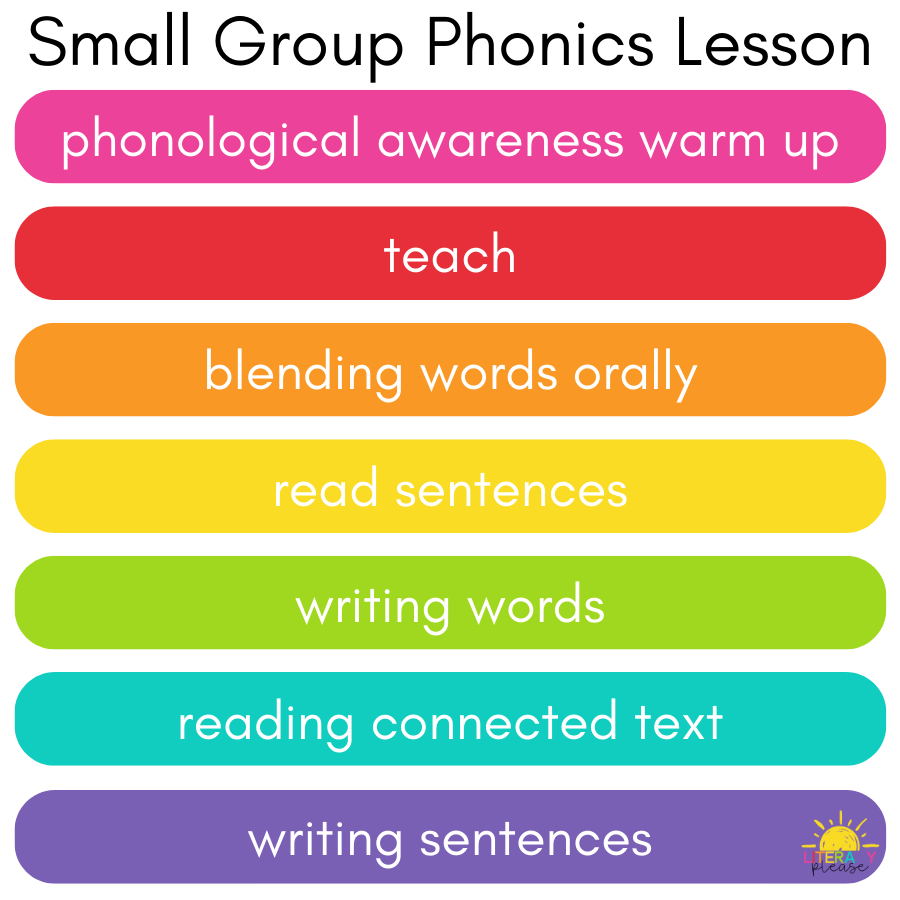
Here you can download a your free starter pack.
5: Decoding
You may have noticed you have students that have strong phonics skills, but are decoding words slowly. These students probably need some decoding strategies to help build their fluency. This could included:
- decoding one syllable words in isolation or in sentences
- breaking apart multisyllabic words
- learning syllabication rules
- practicing compound words or contractions
- identifying prefixes and suffixes for quicker decoding
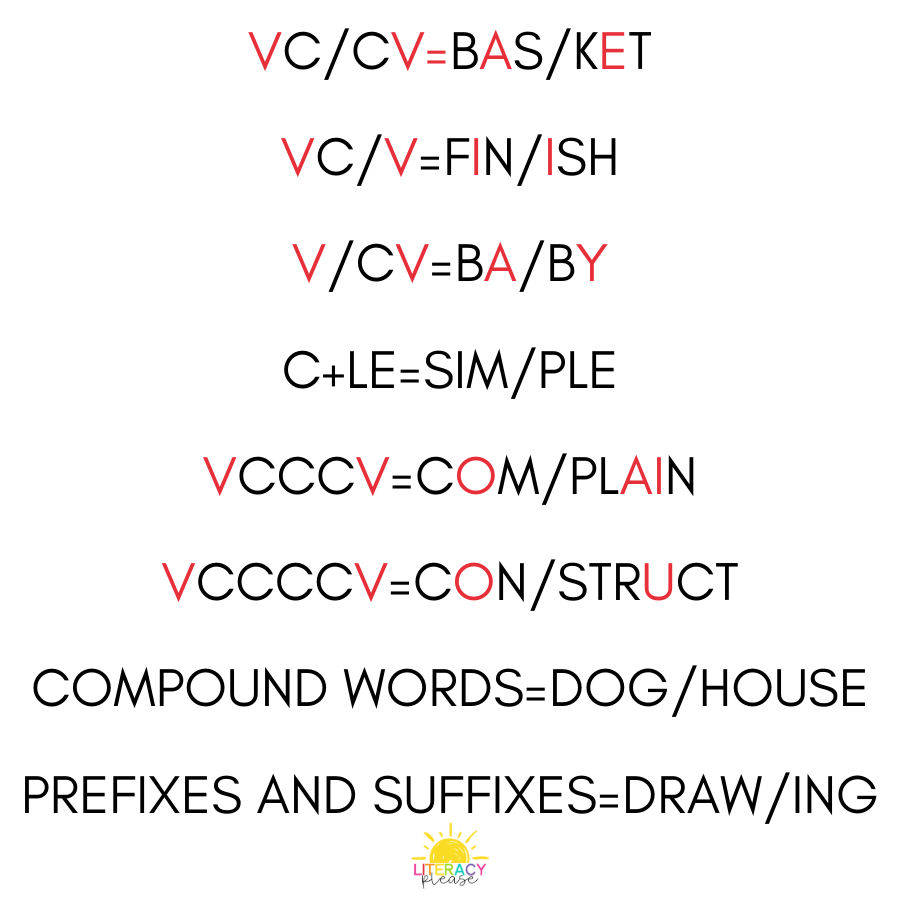
6: Word Work and High Frequency Words
This group would incorporate phonics and might look a lot like a phonics group, but it would be more hands on. Word Work consists of word sorts, making words, and word ladders. The students in this group might also benefit from high frequency word instruction which can be done through word mapping.
7: Fluency
These kids are easy to identify. They’re the ones that could use some strategies for making their reading sound like an actor trying out for the next big movie. Or these could be the kids that forget to stop at punctuation and speed right through. Some of the best reading strategies are geared toward fluency and kids always love them.
Here are a couple student favorites:
- repeated readings with fun voices
- reader’s theater
- Rhythm Walk
8: Comprehension
Comprehension can be a tricky piece. There are students that could read you under the table, but ask them what they read and they have no idea. Reading isn’t just reading words, it’s making meaning of text and kids need instruction on how to be aware of their comprehension. On top of that, students need to practice different levels of comprehension. There’s the surface level comprehension (e.g. identifying characters) and deeper level comprehension (e.g. making connections). Both require instruction.
9: Nonfiction Reading Group
Kids love nonfiction books with all the great photographs on interesting topics. But, let’s be real, nonfiction is a beast all its own. There are text features that are new to kids that can’t be passed up. These features require instruction and THEN you’ll need to work on comprehending the text as a whole.
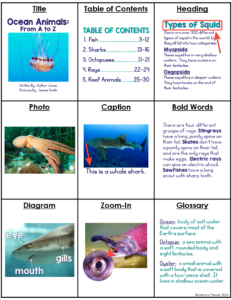
10: Book Clubs
Book clubs are so much fun! Kids love them and you’ll love watching kids become responsible little readers. Kids in this group are generally kids you can trust to be independent and responsible with assignments.
Remember to download your free starter pack. Your students will thank you!
